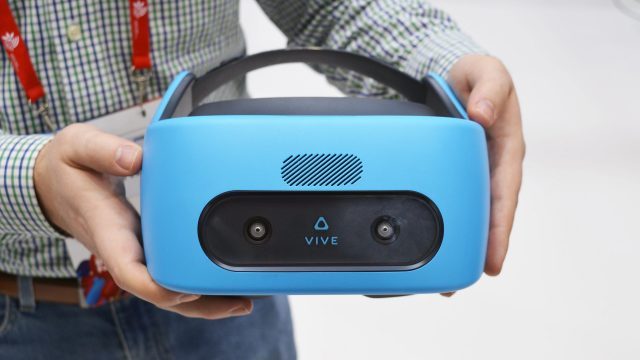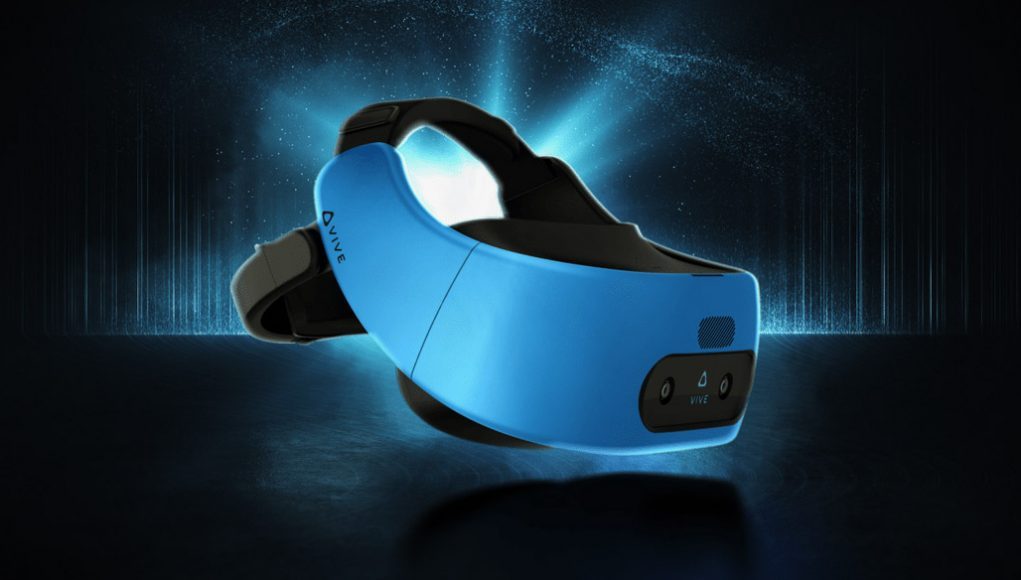After launching the Vive Focus standalone headset in China in late January, the company announced in March that the headset would be launching in the US, EU, and other Western markets later this year, beginning with the launch of a dev kit. With the device appearing in the FCC this, the device is one step closer to its US release.
The Vive Focus is HTC’s first standalone VR headset. Rather than being tethered to a host PC, or relying on a docked smartphone, standalone headsets like the Focus have everything built right in. In the case of the Focus, two cameras on the front of the headset are used for positional (6DOF) tracking, while a single controller offers rotational-only input (parented to the headset’s position for a sort of ‘pseudo-6DOF’). We went hands-on with the headset earlier this year and found that the Focus offers the same high-res 1,440 × 1,600 displays as the Vive Pro. That said, the headset is expected to be priced around $525—which feels a bit expensive with both Lenovo and Oculus soon to bring lower priced standalone headsets to the market—but we’ll have to wait for the official price to be set by HTC.
While the Vive Focus launched right out of the gate as a consumer device in China, HTC is planning a slower rollout for the headset in Western markets. Rather than selling straight to consumers, the company plans to initially make the headset available as a development kit. Developer registration for the Vive Focus opened last month.

As the Focus runs its own software stack, Vive Wave, powered by its own app store, a mobile version of Viveport, it makes sense that the company wants to seed headsets to developers first so that they can get the ball rolling on content before selling to consumers.
This week the Focus and its controller has appeared in FCC filings. Before any company can sell a consumer product in the U.S. which utilizes any part of the electromagnetic spectrum (wifi, radio, BT, etc), it has to be certified by the country’s Federal Communications Commission. Certification marks one step closer to the launch of a product. In this case, we expect that the certification filings indicate that development kits are soon to ship in the US, but it’s likely that it’s the same headset that will eventually be marketed directly to consumers, so this certification likely covers both instances.
Meanwhile, Lenovo’s own standalone VR headset, the Mirage Solo, is set to launch on May 5th, and Oculus seems just on the cusp of launching their ‘Go’ standalone, with a launch announcement expected in early May.







